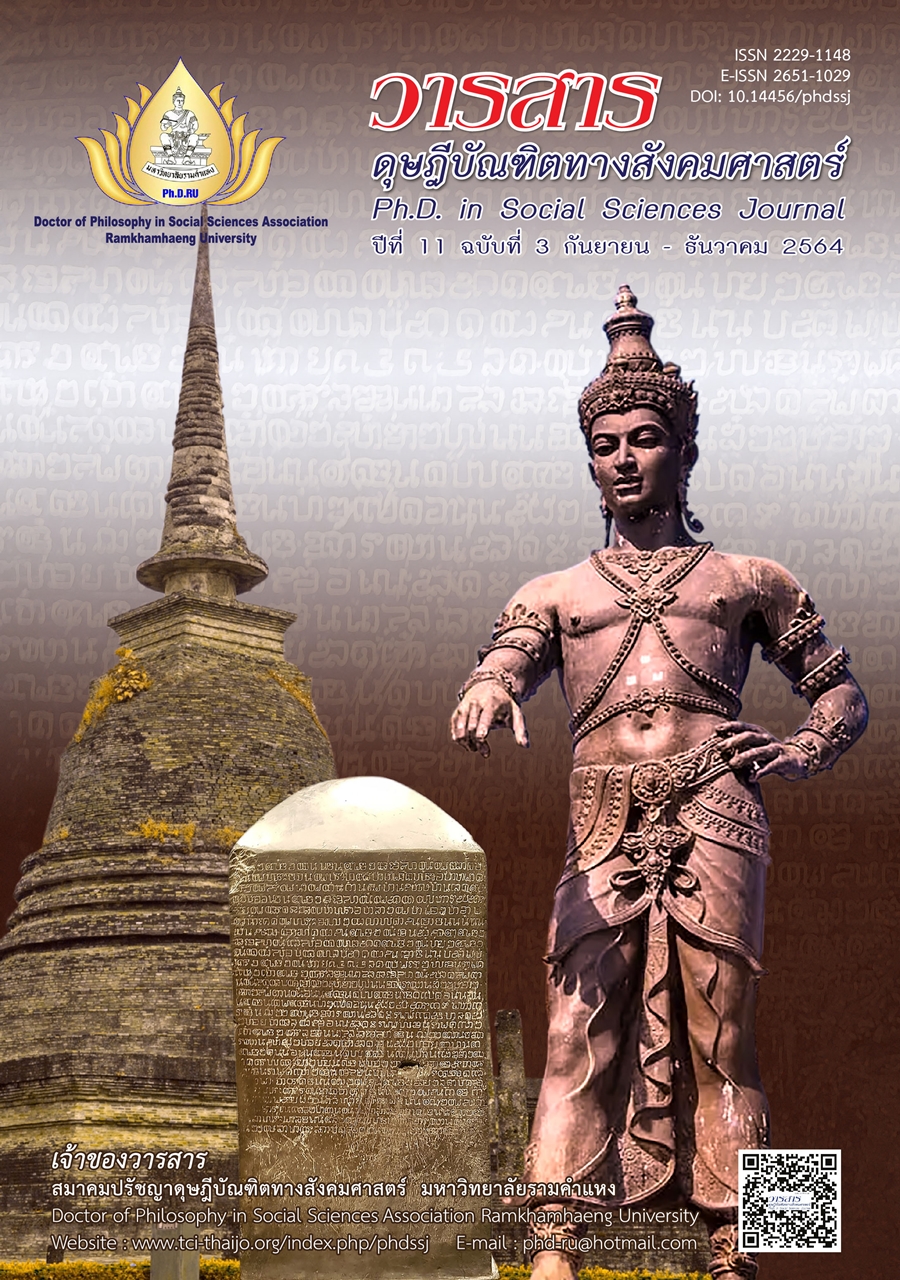The Development of Creative Stimulus Program for Enhancing Service Staff’s Potential in Thai Telecommunication Business
Main Article Content
Abstract
The research objective was for the development of creative stimulus program for enhancing service staff’s potential in Thai telecommunication business. The researcher integrates research techniques, documents, and synthesis and utilize focus group research techniques and in-depth interviews of 17 qualified experts together with creative stimulus program for enhancing service staff’s potential in Thai telecommunication business, creative stimulus program guide set, creative impulse strengthening assessment form on experimental and controlled groups, program participants reaction assessment form on experimental group and controlled groups, creative stimulus skills assessment form on experimental group both before and after participating in the program.
The results showed that there is a very good level of conformity between the development of such programs and the creative stimulus objectives. And the researcher has applied the systematic concept to the design and details of each step of the program. These include inputs, processes, outputs, and outcomes. Service staff’s potential in Thai telecommunication were able to apply creative thinking skills to work activities effectively, be service employees with full potential and with the ability to work.
Article Details
Academic articles, research articles, and book reviews in the Ph.D. in Social Sciences Journal are author’s opinions, and not the publisher’s, and is not the responsibility of the Ph.D. in Social Sciences Journal Philosophy Association, Ramkhamhaeng University. (In the case that research is done on human, the researcher has to be trained in Ethics for Doing Research on Human Training and has to produce the evidence of the training).
References
Akarapin, M. (2012). The correlation of contemporary motivation factors and efficiency of working performance: Case study of fuel services company. Master’s Thesis of Business Administration, Rajamangala University of Technology Thanyaburi. [In Thai]
Baker, W. E., & Sinkula, J. M. (2005). Market orientation and the new product paradox. Journal of Product Innovation Management, 22(6), 483-502.
Buasruang, E. (2008). Leadership styles and achieverment motive of public prosecutor in Attorney General Office Region 5. Master’s Thesis of Public Administration, Chiang Mai University. [In Thai]
Buosonte, R. (2013). Qualitive research in education (4th ed.). Chulalongkorn University Press. [In Thai]
Chalamwong, Y., Hongproyoon, K., Anantatus., A, Prasomsup, R., & Chalardsuk, A. (2016). The study of demand for labor in special economic zones in the next five years (B.E. 2060-2564) in connection with ASEAN Community. Ministry of Labour. [In Thai]
Chookhampaeng, C. (2016). Curriculum research and development: Concept and process. Chulalongkorn University Press. [In Thai]
Department of Business Development. (2016). Commercial registration of store/normal person. Retrieved from https://www.dbd.go.th/news_view.php?nid=373 [In Thai]
Fleiss, J. L. (1971). Measuring nominal scale agreement among many raters. Psychological Bulletin, 76(5), 378-382.
Klankaew, P. (2008a). Human relations to create success in the organization. For Quality Magazine, 15(134), 27-31. [In Thai]
Klankaew, P. (2008b). To motivate subordinates to be diligent in their work. For Quality, 15(130), 129-134. [In Thai]
Marquardt, M. J. (2002). Building the learning organization: Mastering the 5 elements for corporate learning. Davies-Black.
Ministry of Industry. (2016). Strategy for the development of Thai Industry 4.0 in 20 years (A. D. 2017-2036). Author. [In Thai]
National Broadcasting and Telecommunication Commission. (2017). Plan to provide universal basic telecommunication services and social services, Vol. 2, A.D. 2017-2021. Author. [In Thai]
Nikomborirak, D. (2013). Thai telecommunication business: Retrogression. Retrieved from https://tdri.or.th/2012/10/ar011 [In Thai]
Office of the Royal Society. (2011). Service: Royal Institute Dictionary B.E. 2554. Retrieved from https://dictionary.orst.go.th/index.php [In Thai]
Pervin, L. A. (1975). Personality: Theory assessment and research (2nd.ed.). John Wiley & Sons.
Petsri, C. (2013). The follower characteristics and organizational climate influencing operational efficiency of employees. Master’ Thesis of Business Administration, Rajamangala University of Technology Thanyaburi. [In Thai]
SMEs Knowledge Center. (2014). Meaning and business type of telecommunication service business. Retrieved from https://bit.ly/31nMtvV [In Thai]
Tanhakorn, T., & Pasunon, P. (2016). Factors influencing the decision to use a Coffee Shop True (True Coffee) in Bangkok. Ph.D. in Social Sciences Journal, 6(3), 169-180. [In Thai]
Tanhakorn, T., & Chantuk, T. (2017). How to be new generation entrepreneurs in Thailand 4.0. RMUTT Global Business and Economics Review, 12(2), 107-122. [In Thai]
Tanhakorn, T., & Chantuk, T. (2018). Success factors for creative entrepreneurs in the creative economy. Veridian E-Journal Silpakorn University, 11(1), 396-410. [In Thai]
Tejagupta, C. (2006). Attitude and service satisfaction. In the teaching document series service psychology units 8-15. Sukhothai Thammathirat Open University Press. [In Thai]
Wilairat, P. (2014). Strategic management. Siamparitut. [In Thai]
Yin, R. (1994). Case study research design and methods. John Wiley & Sons.


